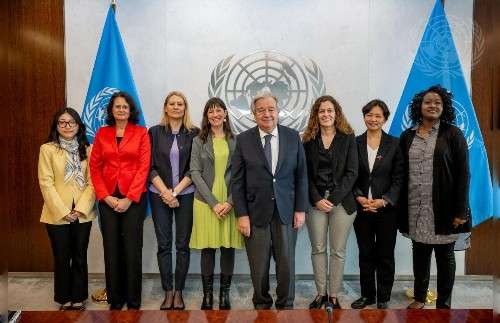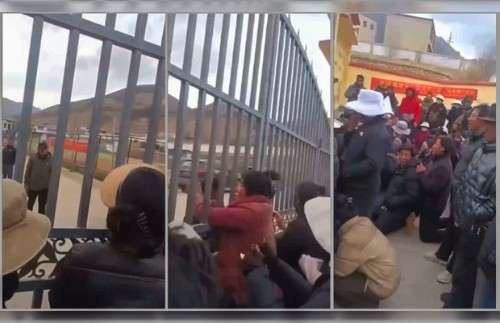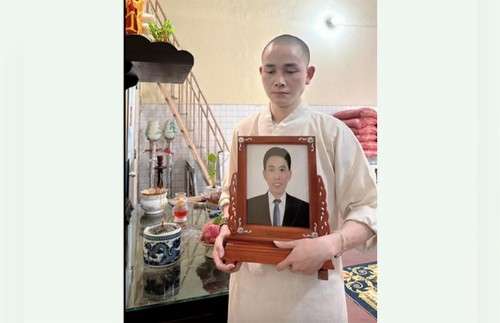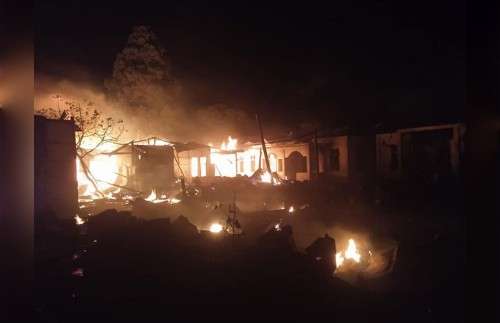Nearly half of the residents of a village in a Uyghur-majority area of northwest China’s Xinjiang Uyghur Autonomous Region (XUAR) have been sent to internment camps amid a policy of mass incarceration targeting minorities in the area, according to an official source.

Authorities in the XUAR are believed to have detained 1.5 million Uyghurs and other Muslim ethnic minorities accused of harboring “strong religious views” and “politically incorrect” ideas in internment camps since April 2017.
Reports suggest that authorities are detaining as many Uyghurs as possible in internment camps and jails regardless of their age, prior service to the ruling Communist Party, or the severity of the accusations against them—as part of a bid to satisfy “quotas” ordered by the regional government.
Those who fail to meet the detention quotas face official scrutiny and, in some cases, are sent off to the camps themselves.
While investigating the number of people held in camps in Kashgar (in Chinese, Kashi) prefecture’s Yengisheher (Shule) county, RFA’s Uyghur Service spoke with a police officer from Ermudun (Ai’ermudong) township’s No. 1 village, who said that at least 45 percent of the population there had been sent for detention.
“There are more than 400 households with 1,336 residents,” said the officer, who spoke on condition of anonymity.
“People from more than 300 households [have been detained] … If we estimate at least two people from each household [are adults], that means there are more than 600 [detainees].”
The officer’s estimation suggests that 75 percent of households in No. 1 village have had at least two people detained in camps.
When asked how households are able to manage farm labor in the largely agricultural area of Kashgar, the police officer said authorities are “providing help, and the village leadership is offering help as well,” without providing further details, other than that “the families are working hard.”
RFA also spoke with the head of a neighborhood committee in Ermudun township who said that No. 1 village is not even the subdistrict of Ermudun with the largest number of detainees per population.
“No. 2 village,” he said, when asked which of the villages have had most inhabitants sent to the internment camps.
The neighborhood committee chief was unable to provide statistics for the number of inhabitants of No. 2 village.
When asked how many people from Ermudun had been sent to the camps, a township official told RFA that he was unsure, saying he had only started working there a month earlier.
While RFA was unable to obtain details, the number of detainees in Ermudun’s No. 1 village seemed to mirror an estimate provided by an official from Misha (Mixia) township, in Kashgar’s neighboring Peyziwat (Jiashi) county, who also declined to be named.
“I don’t know the exact number … [but] it is approximately 50 percent of the population,” the official said.
When asked whether there was any plan to release those held, the official said, “No such information has been given to us.”
The official acknowledged that families are experiencing difficulties carrying out their farm labor amid the detention of many of the township’s household members of working age, but said “they cannot complain” about the situation.
“For those who need assistance, the work group organizes volunteers to help them—we have been helping them in the fields to do things such as harvesting corn or building homes,” he said.
“[Volunteers] are mainly university students who have returned home for their summer vacations. The work group forms a labor workforce by organizing them into teams, and they support families who lack manpower.”
Similar numbers
The numbers from Kashgar are similar to those RFA has reported in other parts of the XUAR, and appear to be linked to directives issued to local authorities by higher-level officials in the region.
In October 2017, officials from two villages in Hotan (Hetian) prefecture’s Qaraqash (Moyu) county told RFA that they had been given a target quota for sending residents to internment camps.
A police officer in one of the villages said he had been informed during an “online conference” in mid-June of that year that his department was to detain 40 percent of the local population for exhibiting signs of “religious extremism.”
While Beijing initially denied the existence of internment camps, China this year changed tack and began describing the facilities as “boarding schools” that provide vocational training for Uyghurs, discourage radicalization, and help protect the country from terrorism.
Reporting by RFA’s Uyghur Service and other media organizations, however, has shown that those in the camps are detained against their will and subjected to political indoctrination, routinely face rough treatment at the hands of their overseers, and endure poor diets and unhygienic conditions in the often overcrowded facilities.
Mass incarcerations in the XUAR, as well as other policies seen to violate the rights of Uyghurs and other Muslims, have led to increasing calls by the international community to hold Beijing accountable for its actions in the region.
In September, at an event on the sidelines of the United Nations General Assembly in New York, U.S. Deputy Secretary of State John J. Sullivan said that the U.N. had failed to hold China to account over its policies in the XUAR and should demand unfettered access to the region to investigate reports of the mass incarceration and other rights abuses against Uyghurs.
Reported by Shohret Hoshur for RFA’s Uyghur Service. Translated by RFA’s Uyghur Service. Written in English by Joshua Lipes.
Copyright © 1998-2016, RFA. Used with the permission of Radio Free Asia, 2025 M St. NW, Suite 300, Washington DC 20036. https://www.rfa.org
Safety Reforms in Bangladesh Garment Sector Risk ‘Losing Momentum’
VOA Asia Weekly:The Story of an Exiled Chinese Journalist
Report Warns,Climate Change Set to Cut Average Income by 19%
Timor-Leste Seeks Economic Lifeline as Oil Wealth Dwindles
South Africa Prepares to End Lion Hunting in Captivity
UN Secretary-General Meets with Working Group on Discrimination Against Women and Girls
On Both US Coasts,Pro Palestinian Encampment Protesters Hold Ground
Philippine Police Arrest 3 Suspects Over On-Air Killing of Broadcaster
If you want to contact us
Subscribe for our latest updates
Subscribe our You Tube Channel














